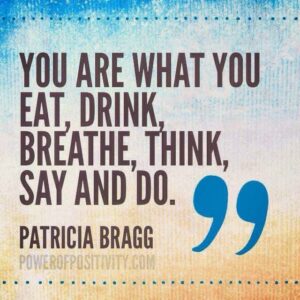Important Disclaimer
The following is for general information only. It is not intended to provide instruction. It should not be taken as medical advice. It should not be used as a replacement for consultation with your doctor. The accuracy of the information provided cannot be guaranteed. Consult your doctor if you are on any prescribed drugs and intend to use this step-by-step approach for optimal health. For example, some suggested supplements may not be suitable for pregnant women, those on blood-thinning medication (e.g., warfarin, aspirin) or those with gastrointestinal issues.
Introduction
The People’s Health Alliance (PHA) have put together an all-encompassing simple step-by-step guide to help empower you for better health, leading to a better daily life and a better you.
To fully thrive at all levels; physically, emotionally and mentally, it is important that we look at those parts of our lives that are out of balance and work to rebalance them.
For most of us this starts with what might seem to be simple changes, but those changes can make a huge difference, not only to our health, but also to an understanding of what supports our health, and importantly, restores a feeling of being in control.
This step-by-step programme is designed so that each phase builds on the previous phase and depending on where you are in your health journey, you might want to begin with Phase One and work from there. If you already incorporate aspects of Phase One in your life, you might want to add to that or move directly to Phase Two.
The Phases have been carefully organised so that any changes you make are gentle and lead you to better health. The effort you put into Phase One will pay your health dividends, in both the short and long term, and prepare you for the later Phases.
This Optimisation Programme includes
- How to avoid stress and will introduce relaxation techniques and meditation.
- How to improve your digestion through balanced diet.
- When to introduce the right supplements (to aid in reducing stressors orinflammatory processes, and importantly, aid in boosting your immune system)
- How to improve your overall health.
We wish you well in your journey.
Making Changes
It can feel completely overwhelming to start making changes to diet and lifestyle when we are already struggling. However we know from experience that making small changes are best, and those small changes can have a huge impact on our body and mind, without causing added stress. So below we have listed some ways you could start immediately improving your health.
Even one change a week can make a difference and when we start to do something positive for ourself, that is in itself empowering, and that feeling of empowerment spurs us on to make more changes on the path to achieving our optimum health.
Getting Started
Breathe
Most people never think about how important breathing is and most people don’t know how to breathe properly. Many of us take shallow breaths, spend time actually holding our breath and never really breathe deeply. So regularly throughout your day, stop what you are doing and breathe. Deeply and fully, and as you exhale completely, imagine letting go of stress and tension. It’s easy to do anytime and anywhere and you will notice the difference.
Walking
Have a quick walk around the block if you don’t get out very often. Daily fresh air is important. Even five minutes will make a difference. Breathe in the fresh air (see above!). The more time you spend outdoors the better. If you can walk somewhere green, reconnect with nature.
Stay Connected
Many people feel isolated and alone. Ring a friend or text to arrange a meet-up. Checking in with those we are closest to is very important for our wellbeing. If you’ve not seen someone for a while, take the time to make that call.
Computer Devices
Reduce time on devices such as phones and laptops. Reduce social media. Most of us spend too much time on these things so start to cut down.
Dietary changes
Dietary changes can be difficult, especially for those of us who never cook a meal. So, if you’re one of those people, maybe it’s time to start? Even cooking once a week will start to get you in that mindset. Learning to cook is one of the most beneficial things for health and it’s never too late to start.
Buy a soup maker and a nutribullet if you can afford it, they will pay dividends. This can be a quick way to create a healthy meal when time is short. So many healthy foods can be added, including herbs and spices.
Helpful Tips
Easy tips can be helpful to get you ready for the dietary guidelines given below, so here are a few:
- Frozen veg. Keep them in your freezer so that you can add them to your meals. Better to eat frozen than no veggies at all.
- Spinach leaves. Keep a bag in the fridge. Add to sandwiches, pizzas, you can even finely chop them into baked beans! They are super nutritious and easy to add to pretty much anything.
- A piece of fruit a day! For starters, even just an apple a day is better than nothing. You’ll soon find you want to eat more of the good stuff.
- Add ground cloves and cinnamon to porridge and warm cereals or puddings like rice pudding. They are incredible for our health!
- Sprinkle dried oregano onto pizzas and anything else you enjoy. Try to buy organic if you can when purchasing herbs and spices but again, non-organic herbs are better than no herbs.
- When you’re eating a meal think “what can I add to make it healthier?” For example, beans on toast; swap white bread for brown. Add a pinch of turmeric to beans. Throw in a couple of spinach leaves. Sprinkle on dried oregano. You’ve upped the nutritional content of an easy snack with virtually no effort!
Water!
Most people are dehydrated and changing this alone would solve so many health issues. Fill a bottle up and then you can see how you’re drinking throughout the day. Drink warm or room temperature water rather than cold water from the fridge.
Get a jug filter if you can, you’ll be surprised at the difference it makes to the taste. Add lime, lemon or herbs if you’re not used to drinking water. Start your day with a glass of warm water, it’s also really good to relieve constipation.

Meditation
There’s an increasing amount of research that suggests that “mind-body practices” dampen the activity of genes associated with inflammation – essentially reversing molecular damage caused by stress. Meditation doesn’t just calm the mind – it seems to affect our DNA also. [1]A meditation: “Protecting your Body”
Sleep
It’s a well-established fact that sleep is essential to our physical, emotional and mental health, so getting a good night’s sleep is incredibly important for your health. In fact, it’s just as important as eating a balanced, nutritious diet and exercising.
Though sleep needs vary from person to person, most adults require between 7 and 9 hours of sleep per night. Both sleeping too much or too little can be detrimental to your health.

Benefits of a regular sleeping pattern and a good night’s sleep
- Improves concentration, focus, productivity and performance (mental and physical). Enhances memory and improves problem solving skills.
- May lower your risk of heart disease, as low sleep quality and duration has been shown to affect your risk of developing heart related conditions.
- Reduces mental health concerns, such as depression.
- Supports a healthy immune system.
- May reduce inflammation in the body. Poor sleep is linked to increased inflammation in the body.
- Sleep plays a key role in the regulation of our central nervous system and helps reduce stress levels which can undermine our health.
- Reduces the risk of developing obesity, weight gain and the probability of developing insulin resistance and type 2 diabetes. Sleep deprivation may increase your appetite for foods high in sugar and fat.
qwer
How to improve your sleep and sleep routine
Creating a Sleep-Inducing Bedroom
- Use a good mattress, pillow and beddings
- Sleeping in a darkened room helps quality of sleep, use black out curtains if you can and avoid electronic devices and TV in the bedroom.
- Make your bedroom as quiet and peaceful as possible
- Have the right temperature, sleep is most restful in a cool bedroom.
- Use essential oils like lavender in a diffuser to help you fall asleep or put a few drops on your pillow or a handkerchief.
Optimizing Your Sleep Schedule
- Go to bed at the same time every night if possible, and this will help you to wake up at the same time in the morning. Setting this rhythm will help your sleep.
- Be cautious with naps as it may affect your sleep at night. Power naps can be really helpful but restrict them to twenty minutes maximum.
Crafting a Pre-Bed time Routine
- Wind down for at least 30 minutes before bed: either with quiet reading, having a relaxing bath, listening to soothing music or try some gentle relaxation or breathing exercises.
- Avoiding bright light before going to bed helps you transition to bedtime and contributes to your body’s production of melatonin, a hormone that promotes sleep.
- Disconnect from digital devices as the blue light from their screens can suppress your natural production of melatonin. As much as possible, try to disconnect from all devices for 30 minutes or more before going to bed.
Fostering Pro-Sleep Habits During the Day
- Be out in daylight to help with your circadian rhythm, your natural sleep–wake cycle.
- Daily exercise helps with relaxing before going to bed. However, intense exercise close to bedtime may hinder your body’s ability to effectively settle down before sleep.
- Reduce your caffeine intake, especially after 3pm. Although alcohol may seem to help you get to sleep, it affects the brain in ways that can lower sleep quality.
- Do not go to sleep on a full stomach and avoid fatty or spicy foods at night. Opt for a healthy alternative for an evening snack like a banana, a few almonds, or a chamomile herbal tea.
- Smoking or being exposed to cigarette smoke may reduce your quality of sleep.
If you still cannot sleep
- Try Relaxation Techniques, with “tummy” breathing, mindfulness meditation, progressive muscle relaxation, and guided visualisation.
Experiment with different methods to see what will work for you (see below). Keeping a sleep diary can help spot patterns and see what works best for you.
Progressive Muscle Relaxation as shown by Dr. Neda Gould from John Hopkins Rheumatology
Breathing Technique as shown by Suzanne Smith, MSN, NP, CMT-P, nurse practitioner
Mindfulness Meditation can be done in 10-minute sessions, and there are also apps you can put on your phone to help you with this, such as “Calm” – (search on your app store)
Guided Visualisation as shown by City of Hope (a leading research and treatment centre)
Digestion
We can spend a lot of time focusing purely on diet and overlook digestion, but in order for our body to benefit from eating good food, we need to make sure our digestion is in good working order. When our digestion is good, it means that the important nutrients from our food can be absorbed and assimilated and the rest eliminated efficiently. No amount of juicing, sprouting seeds and eating organic vegetables is going to help us to be well if we can’t assimilate them.
The state of our mind has a huge impact on that of our digestion, and vice versa. So digestive health and state of mind are fundamental to good health and wellbeing. When we eat with a feeling of contentment and peace, our food is assimilated better than if we eat while feeling angry or stressed.
Preparing and cooking meals with care is also important. Food delivered with love is more nourishing to our body and mind. It’s important to try to do our best and eat nutritious foods as much as we can, but if we don’t always manage to do so, it’s also fine and not something to stress or feel guilty about. Just doing our best is the main thing. We will find that the healthier the things we do for ourselves, the more we will want to continue on that path.
There are many ways to improve our digestion
- Don’t graze. Our digestive system, like the rest of us, needs a break, so take care with snacking and if you do need a snack, eat something healthy whenever you can.
- If you find it very difficult to eat proper meals and have a poor appetite, following the other things in this list will help. For now, you may need to continue to eat small amounts of food a little more often, but it’s important that the foods you do eat are easy to digest. At this stage, cooked warm foods are much easier to digest than cold raw foods. Soups and stews, including digestive spices (see below) are easier on the digestion and can help create a healthy microbiome (the healthy gut bacteria that we need to digest our food properly).
- Eat when you are hungry, not just because you think you should eat. Eat when your previous meal has been fully digested and you feel hunger pangs.
- Include digestive spices in your food if you can: cumin, coriander, ginger, fennel and cardamom are all excellent.
- Drink warm water and herbal teas throughout the day. Warm drinks like these with the added benefits of herbs, helps take care of the digestion all day long. If you are new to drinking herbal tea, start by replacing one of your usual coffees or teas each day and you’ll find you soon start to love them! Buy a box of mixed herbal teas to find the ones you prefer.
- Don’t eat on the go or at your desk! Take time to honour meal times and enable your stomach to relax and appreciate the food you are eating. When we are relaxed our digestion, like everything else, works more efficiently.
- Fasting can be an excellent way to give our digestion time to recover, and our body to do some healing, but work with a practitioner who can help you work out a routine that works for you.
- Yoga is great for digestion and there are specific postures that can help to improve it.
- Regular exercise is also important if your health and energy levels permit.
- Practice this little meditation to help your stomach feel good and improve your digestion: sit somewhere comfortable, take your awareness to your stomach, putting your hand on it can feel comforting. Take a few relaxing breaths. Let go of any tension you are holding in that area. The stomach is a place we can hold our worries and stress. Imagine your stomach relaxing fully, and gently let go. Imagine your stomach is smiling. Smile into your relaxed happy stomach and feel the peace.
Diet
“What is a healthy diet?” There are so many different views of what we should be eating to stay healthy. Paleo, plant based, low fat, low carb, full fat, full carb……! So much confusion! People claim certain diets have changed their lives, and they have, but that doesn’t mean what they did will suit you.
We should strive for a varied diet full of fresh ingredients, whole foods rather than processed foods, rich in fresh veggies, fruits and wholegrain, seeds, nuts, beans and lentils and small quantities of good quality meat and fish if you are not a vegetarian. Our plates should have plenty of colour and variety to ensure diversity of our microbiome, the healthy bacteria in our gut which is essential for good health.
Eventually you might want to grow your own, but for now even just a pot of parsley on the window sill is going to inject some wonderful flavour and goodness.

Use fresh and dried herbs and spices. Herbs are an absolutely incredible way to boost the nutritional value of your food! If you are a meat eater, try some vegetarian options as well.
Most people don’t eat enough fibre, so ensure you consume plenty of fibre rich foods: fruit, veggies (skins on if possible), beans, lentils and wholegrains: brown bread, brown rice and pasta, and try grains like quinoa, barley and whole oats.
Use the best quality oils and fats you can afford, organic and cold-pressed as much as possible. Olive oil for salads but not cooking.

Supplements
The following supplements can be considered in support of the other steps covered in this programme.
| Supplement | Amount | How often |
| Vitamin C (Ascorbic Acid) | 1000mg | Space evenly throughout day (every 6 hours) |
| Milk Thistle | 100mg | Daily |
| Vitamin D3 (Cholecalciferol) | 4,000 IU | Daily |
| Vitamin K2 | 200 ug | Daily |
As listed above, this is the first phase of this Health Optimisation Programme. After around a week to 10 days, if you feel comfortable about making more changes, you can move onto the second phase.
| Supplement | Dose | How often |
| Vitamin C (Ascorbic Acid) | 2000mg | Daily |
| Black Cumin (Nigella Sativa) | 200mg | Twice per day |
| Vitamin D3 (Cholecalciferol) | 4000 IU | Daily |
| Vitamin K2 | 200ug | Daily |
| Garlic | 1000mg | Daily |
| Milk Thistle | 100mg | Daily |
After around a week to 10 days, if you feel comfortable about making more changes, you can now move onto the Phase 3.
| Supplement | Dose | How often |
| N-Acetyl Cysteine (NAC) | 1200mg | Daily |
| Vitamin C (Ascorbic Acid)* | 5000mg | 1000mg spaced throughout the day |
| 5-hydroxytryptamine (aka 5-htp) (Serotonin) | 100mg | 30min before bed |
| Black Cumin (Nigella Sativa) | 500mg | Twice a day |
| Quercetin | 1g | Daily |
| Zinc | 50mg | Daily |
| Vitamin D3 (Cholecalciferol) | 4000IU | Daily |
| Vitamin K2 | 200ug | Daily |
| Curcumin (Turmeric) | 500mg | Daily |
| Garlic | 3000mg | Daily |
| Milk Thistle | 100mg | Daily |
* At higher doses, Vitamin C can cause digestive disturbances, usually loose bowel movements. It is recommended that the dose is increased slowly from 2000mg / day (Phase 2) by 1000mg increments until 5000mg / day is reached.
Any protocols, whilst developed by qualified medical practitioners, we are aware they do not have the benefit of medical consensus and are correct at the time. Clinical experience and further research is on-going and is subject to change.
